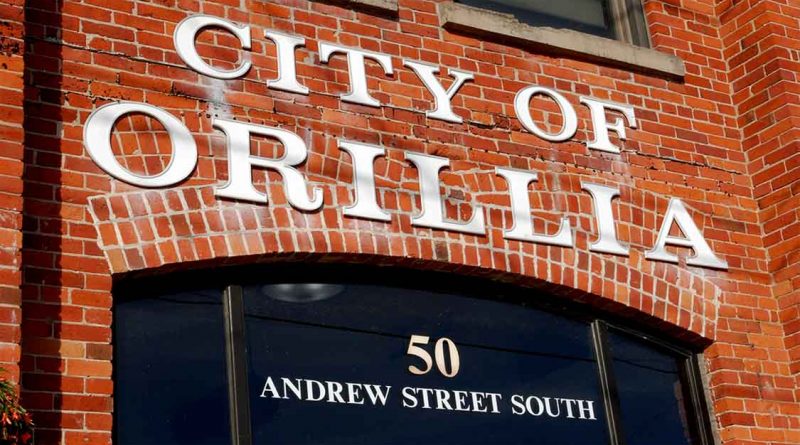Council Preview
By John Swartz
Orillia council’s Monday committee meeting schedule starts at 3 p.m. with a closed session. There is only one item to discuss and it is to receive an update on a land opportunity related to Hydro One.
When council goes public at 4 p.m. they have 11 items on the agenda. First up will be the consent agenda, which has 4 items on it that will pass with one motion, unless a councillor pulls something for separate discussion and vote. The items on this agenda are:
![]()



![]()
- Continuation of the agreement with Orillia and Lake Country Tourism to be the agent collecting the Municipal Accommodation Tax, or hotel tax. Lake Country gets a 2.5% fee for doing the legwork and the remainder is split 50/50 with the City. In 2021 visitors paid $355,738 for the tax. Lake country gets to use $20,000 of it’s share for operating expense and the remainder has to be use for tourism promotion.
- A motion to receive a grant from the federal government’s New Horizons for Seniors grant program in the amount of $24,105 to establish a Seniors Essentials Program; “a series of monthly workshops and programming aimed at educating seniors in the community about mental health, nutrition, chronic illness, physical literacy, balance and stability and independent living.”
- A motion to receive a report to make the intersection of Matchedash and Elgin Streets a 4-way stop – which means there will be no change to the way things are now. Staff said the traffic volume was only 53% of the threshold during the busiest hour and there has only been one accident since 2018, which is considerably less than the 4 per year over 4 years the provincial traffic manual requires.
- A report recommending awarding a contract to TMR Restoration and Construction to restore the brick and limestone on the Sir Sam Steele Memorial Building clock tower. Last month a crack in a block of limestone was discovered and the piece was removed and saved for reinstallation. The sidewalk below the tower has been blocked off. The budget was for $200,000 but the lowest tender for the work was $29,000 higher than the total budgeted for the project. The original budget also included consultants fees and contingency, so staff recommend increasing the budget by $99,000 to be taken for the capital contingency reserve.
- The last report in this section is to award a contract to Stoneline Ltd. for pavement marking at a cost of $219,560. Again, this came in higher than the $89,600 budgeted and staff are asking for an increase of $133,825 from the tax rate stabilization reserve. It’s interesting to note how people just don’t know where to drive without lane and crosswalk markings; the cities of Hamilton and Oshawa (missing stop bars), and Orillia (no painted center line) were held partially liable in resulting in accidents.
Climate Action Plan
The big item on the balance of the agenda is for council to approve a climate action plan. The motion calls for targets of 50% reduction in green house gas emissions below 2018 levels by 2030 and 100% by 2050. That’s the corporation’s target, the motion also includes a community target of33% reduction by 2030 and 100% by 2050 (this will be achieved by programs to encourage businesses and people to make improvements).
The city has already begun projects to meet those goals such as converting street lighting to LED, converting lighting in municipal buildings to LED, building solar generating facilities on municipally owned buildings and, as is contained in the motion, allocating $155,000 to design budgets for the new transit station and Brian Orser Arena refurbishing to improve energy use. The City also plans to start converting its fleet to electric vehicles over the next few years and has consultants working on studies to make recommendations for capital projects which will result in better energy use (heating, etc).
The report is 209 pages long and likely will generate a lot of discussion during the meeting.
Social Work
As society continues a path toward breaking down, municipalities are finding it necessary to deal with issues higher levels of government spin wheels on dealing with symptoms instead of causes. In Orillia’s case things have gotten so out of hand at the Orillia Public Library (206 incidents over 3 years, 45 involved the police) and in the downtown (18 of 20 pedestrian mall dates needed police assistance) and at City Hall (people sleeping in hallways) staff at those places are feeling threatened and incapable of dealing with what is occurring.
At budget the City allocated $72,000 (pending this report on qualifications and job parameters)to hire a social worker in order to deal with incidents and funnel those involved to other agencies where they might get help. The report council has addresses what the job will entail, outlines how connections can be made with other agencies, and recommends approval to hire a social worker who would be working out of the library, but available to the DOMB and City Hall.
Until other levels of government address working conditions, living wages, housing, drug addictions (which in itself can be viewed as a symptom rather than a cause) and mental health care, this may become an annual feature of operating budgets.
Food
Council has a report recommending a change to wording in the municipal code relating to business licensing for fruit and vegetable stands which will change the definition of local produce from products grown in Orillia and surrounding townships, to include food from anywhere.
Beginning in 2018 license has been granted to only one business, Hewitt’s, to operate in three different locations. A second option, supported – according to a letter writer – by Sustainable Orillia, the Farmers’ Market and the Orillia Food Council recommends if a change is made, to restrict products to those grown in Ontario.
Staff makes a curious argument that no other jurisdiction restricts products for food vendors, or any other retail establishment for that matter, and cannot conceive of individual, or unique circumstance as the case has been made repeatedly at council by various groups advocating for sustainability in food supply. Council has voiced support and created a food council to meet local objectives, yet here when action is to be taken, staff recommend against local food producers because it’s easier to enforce with the change.
The City charges $508 for a license of this type, which is on average approximately twice as much as municipalities with similar by-laws. Food groups advocate for exemptions for local producers, which is addressed in the report, but not the recommended motion. Again, staff can’t conceive of special circumstance and argues all businesses should then get an exemption if one is granted in this case.
For a more thorough examination of this issue, and rebuttal to staff’s report, see Jacob Kearey-Moreland’s letter to council provided to SUNonline/Orillia, here.
Sorry, I’m Not Available
It seems these days more employers have come to believe their employees are theirs 24 hours a day, based on whim. This is becoming such a problem the province directed municipalities to come up with policies to define and restrict the ability of management to contact employees after they’ve punched out.
Such a policy is on the agenda. It recognizes there are emergency circumstances where contacting staff is necessary, and the definition of emergency is pretty tight.
This is a good example of government being the model to follow rather than doing what everybody else is doing.
Last is an enquiry motion from councillor Jay Fallis which was on the last committee meeting agenda. It was held over because Fallis was unable to be at the meeting to present his motion. It concerns a motion for staff to prepare a report on the feasibility and costs of installing remote solar light fixtures at Clayt French Dog Park and to string lights along the trail next to West Ridge Boulevard.
Council meetings are done by video conference and the chamber is closed to the public. The public can watch it live on Youtube.
(Photos by Swartz – SUNonline/Orillia)




